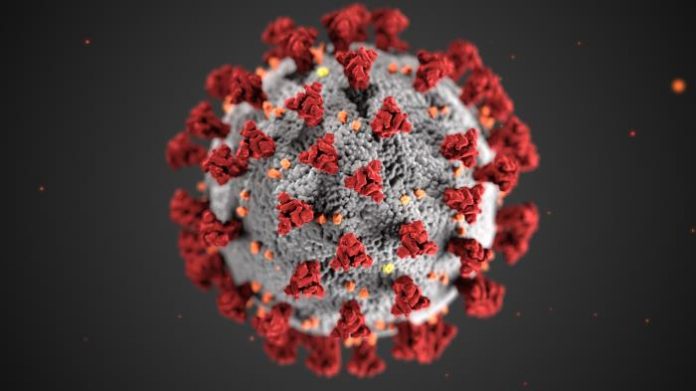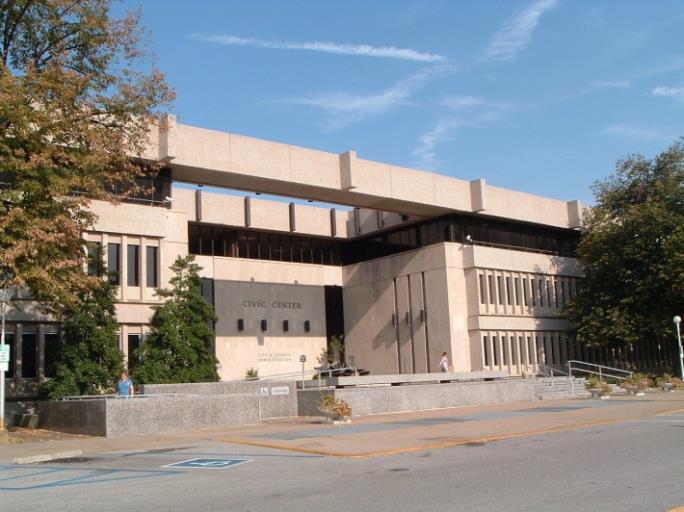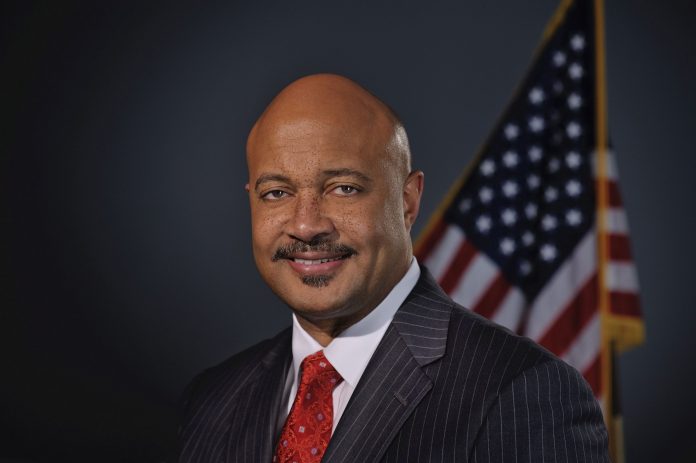
Taskforce Offers Sweeping Recommendations To Protect Hoosiers Hardest Hit By COVID-19
Taskforce offers sweeping recommendations to protect Hoosiers hardest hit by COVID-19
By Erica IrishÂ
TheStatehouseFile.comÂ
INDIANAPOLIS — A new task force studying health disparities in Indiana recommended Monday state leaders take immediate action to improve contact tracing and lead mobile testing efforts in communities disproportionately affected by the COVID-19 pandemic.

Those recommendations are part of a new report published by the Indiana Health Disparities Task Force, a group that formed in April under the leadership of the Indiana Black Legislative Caucus to study and address why some communities are disproportionately affected by the pandemic. The task force has worked towards this goal for the last several months with help from the Indiana Minority Health Coalition, the Interagency State Council on Black and Minority Health and the Indiana State Department of Health’s Office of Minority Health.
The task force followed two goals in building the report. First, its members sought to provide an action plan to address any health disparities in Indiana’s COVID-19 response. The task force also recommended a plan that specifically addresses the needs of prison populations, jails and juvenile detention centers.
The report notes Black and Latinx communities have been some of the hardest hit in Indiana because members of these groups are more likely to have underlying health conditions that can lead to more severe COVID-19 cases. Additionally, individuals who are Black or Latinx tend to live and work in environments that can lead to more COVID-19 transmission and infection, including working in the service industry or living with multiple families.
To create policies that better protect vulnerable Hoosiers, the task force divided into eight groups to focus on specific areas, from communication and education to the incarcerated. For each of these areas, the groups identified several barriers to COVID-19 prevention and treatment. For example, the report highlights an increase in uninsured or underinsured people as they have lost jobs or been furloughed in the pandemic’s economic downturn.
In response to these barriers, the task force offered a sweeping list of recommendations. Among those increasing contact tracing and testing in vulnerable communities, including free and mobile testing services. The report also recommends workplaces expand insurance eligibility and coverage, that communities create more opportunities to educate the public about the pandemic, and that more funding be made available for essentials like food and personal protective equipment.
For prison populations, the report proposes that facilities conduct regular symptom screening, promote better physical distancing and provide needed testing for incarcerated people at no cost. The report also calls for the expansion of reentry services to combat prison overcrowding, which poses challenges to COVID-19 prevention.
IBLC Chair Rep. Robin Shackleford, D-Indianapolis, presented the findings in the report last week to a study committee on public health, behavioral health and human services. There, Shackleford underscored the need for action.
“It’s no secret Black Hoosiers are suffering at a higher rate during this pandemic and it is my sincere hope that my presentation leads to swift recommendations from the legislature,†Shackleford said in a statement Monday. “The longer we wait, the more people we will lose.â€
Erica Irish is the 2020 Russell Pulliam student editor for TheStatehouseFile.com, a news website powered by Franklin College journalism students.Â
Temperature Screenings: Thermal Imaging Cameras Installed At Civic Center
Relaying some information from the Evansville/Vanderburgh County Building Authority:
Thermal imaging cameras have been installed at the Civic Center security screening entrances.
Beginning October 21, 2020, cameras will automatically scan temperatures as individuals enter the facility.
If an individual’s temperature exceeds 100.4 degrees, an alarm will sound and Vanderburgh County Sheriff Deputies will stop them from entering.
Individuals will have the option to be rechecked with hand held thermometers at the Security Desk.
EPA Appoints New Members To The Science Advisory Board And Subcommittees
Administrator Continues to Strive for Scientific and Geographical Diversity
“I’ve known John for years and he is really one of the best environmental scholars this country has to offer,†said EPA Administrator Andrew Wheeler. “His advice has been influential during his time on the SAB and I am looking to his future advice as Board Chair. I’m also pleased to announce Dr. Barbara Beck as the new Vice-Chair for the SAB. This Administration has re-established the importance of the SAB and utilized its very talented experts to provide advice on those issues critical to the Agency and its mission. I’m confident in their ability to help lead the Board as it continues to take on more projects and work more efficiently than ever before.â€
Dr. Graham has served as a member of the SAB for the past three years. He is a professor in the School of Public and Environmental Affairs (SPEA) at Indiana University (Bloomington and Indianapolis) and served as Dean from 2008 – 2019. His previous academic roles include Dean of the Pardee RAND Graduate School in California (2006-2008) and tenured Professor of Policy and Decision Sciences at the Harvard School of Public Health (1985-2001), where he founded and led the Harvard Center for Risk Analysis. At the request of President George W. Bush, Dr. Graham also served in the Executive Office of the President as Administrator of the U.S. Office of Management and Budget’s Office of Information and Regulatory Affairs (2001-2006). In this capacity, Dr. Graham led the regulatory-review, statistical, and information-policy functions of the federal government. Dr. Graham earned his BA in economics and politics from Wake Forest University (1978), his MA in public affairs from Duke University (1980), and his Ph.D. in public affairs from Carnegie-Mellon University (1983). After his PhD, Dr. Graham was an EPA-supported post-doctoral fellow in environmental health at the Harvard School of Public Health.
“Dr. Graham is a leading scholar of risk analysis and the use of scientific information in EPA decision making. He is an experienced and effective leader of academic and government institutions. Under his chairmanship, the SAB will provide a clear voice for soundly reasoned decision making,†said Harvard School of Public Health Professor James Hammitt.
“As an environmental chemist, I was happy to have been led for more than a decade by Professor Graham. He was an effective and visionary leader who respected the crucial roles that the physical and natural sciences play in developing environmental policy. He was always supportive of the sciences in the O’Neill School. I was on the search committee that selected him, and I am pleased to say that we made the right choice,†said Indiana University Distinguished Professor Emeritus Ron Hites.
To work with Dr. Graham as the Vice-Chair of the SAB, Administrator Wheeler has selected Dr. Barbara Beck. Dr. Beck has also served as a member of the SAB for the past two years. Dr. Beck is a principal at Gradient, an environmental and risk sciences consulting firm. She is an expert in toxicology and human health risk assessment for environmental chemicals, especially metals and air pollutants. Her broad experience in risk assessment includes toxicological evaluations of many different types of chemicals, along with the development of evaluation methodologies. Several of her publications have received awards from organizations such as the Society of Toxicology’s Risk Assessment Specialty Section and EPA. Dr. Beck’s participation in advisory committees and expert panels, such as the National Research Council, the International Life Sciences Institute, and her local Board of Health, has spanned over thirty years. She received her Ph.D. in molecular biology and microbiology from Tufts University and her B.A. in biology from Bryn Mawr College (cum laude).
“With today’s announcements, I’d also like to thank Dr. Honeycutt for his service these past three years,†said EPA Administrator Andrew Wheeler. “Dr. Honeycutt’s leadership has been instrumental in addressing the many complex science issues facing the EPA and in helping this Administration reestablish the importance of the SAB.â€
Dr. Honeycutt has devoted many hours to the work of the SAB during his tenure. His steadfast leadership has enabled EPA to obtain independent advice on numerous scientific issues, including a review of EPA’s Identification of Research Needs to Address the Environmental and Human Health Impacts of COVID-19 and EPA’s draft technical report entitled Screening Methodologies to Support Risk and Technology Reviews (RTR): A Case Study Analysis. He also oversaw the SAB’s scientific advice regarding proposed actions on the Agency’s regulatory agenda, including the draft Strengthening Transparency in Regulatory Science Rulemaking.
SAB has provided numerous consultations under Dr. Honeycutt’s leadership, including consultation on New Approach Methods and Reducing the Use of Laboratory Animals for Chronic and Carcinogenicity Testing, a consultation on Mechanisms for Secure Access to Personally-Identifying Information and Confidential Business Information Under the Proposed Rule, Strengthening Transparency in Regulatory Science, and consultation on EPA’s Consolidated Human Toxicity Assessment Guideline. These are only a few of the many reviews his leadership has made possible, reviews that have assisted the EPA in making important progress in its mission to protect public health and safeguard our nation’s air, land, and water. Administrator Wheeler wishes Dr. Honeycutt continued success in his work at the Texas Council on Environmental Quality.
With this announcement, the Administrator is also appointing 16 new members to the Science Advisory Board and its four subcommittees, as detailed below.
“In a fair, open, and transparent fashion, EPA reviewed a diverse group of qualified applicants nominated for these committees,â€Â said EPA Administrator Andrew Wheeler. “Members who will be appointed or reappointed include experts from a wide variety of scientific disciplines who reflect the geographic diversity needed to represent all ten EPA regions.â€
Having expert scientists on the SAB who bring wide-ranging scientific perspectives and come from across the country has been a point of emphasis for this Administration. In FY 2021, 30 states and the District of Columbia will be represented on the SAB and its standing committees.
The Process
The EPA announced in a Federal Register Notice on April 1, 2020, that it was inviting nominations of experts to be considered for the Administrator’s appointment to the SAB and its four standing subcommittees. The nomination period was extended in another Federal Register Notice published on August 14, 2020. The nomination period closed on August 31, 2020. The SAB Staff Office identified 72 candidates that confirmed interest to serve on the Board and an additional 63 candidates with confirmed interest to serve on the four SAB subcommittees. Each of the candidates submitted bio-sketches and their curricula vitae. The List of Candidates was posted on the SAB website for a 21-day public comment period that closed on October 5, 2020.
The Science Advisory Board
In FY 2020 the SAB had 44 members. SAB members are initially appointed to serve a three-year term and may be reappointed for a second term. Twenty-three current SAB members’ terms (neither first nor second) do not expire this year and they will continue to serve on the Board. One member completed his second term and is ineligible for reappointment. Another member resigned earlier this year. Nineteen current members of the SAB have completed one term of service. Thirteen of these first-term members will be reappointed by Administrator Wheeler. In addition, Administrator Wheeler is also appointing six new board members (listed in table 1 below) to bring the total SAB membership to 42 for FY 2021. Dr. John Graham will be appointed as the new SAB Chair and Dr. Barbara Beck will be appointed as the SAB Vice-Chair.
The Agricultural Science Committee
In FY 2020, the ASC had 21 members. No members had expiring terms and thus all remain on the committee. The Administrator is appointing one new committee member (listed in table 2 below). Dr. Otto Doering continues as the ASC Chairman.
The Chemical Assessment Advisory Committee
In FY 2020, the CAAC had 19 members. Of those, 17 members had terms that do not expire and thus remain on the committee. Two CAAC members completed their second term of service in FY 2020. No members had their first three-year term expire. Administrator Wheeler is appointing three new committee members (listed in table 3 below), Dr. Kenneth Mundt will be appointed the new CAAC Chairman.
The Drinking Water Committee
In FY 2020, the DWC had 13 members. Of those, ten members had terms that do not expire and thus remain on the committee. Three DWC members completed their second terms in FY 2020. In addition, the Administrator is appointing three new committee members (listed in table 4 below). Scott Potter will be appointed the new DWC Chairman.
The Radiation Advisory Committee
In FY 2020, the RAC had 14 members. Of those, 9 members had terms which do not expire and thus will remain on the committee. Five RAC members completed their second term of service in FY 2020. The Administrator is nominating three new committee members (listed in table 5 below.) Dr. Brant Ulsh continues as the RAC Chairman.
“I sincerely thank each of the scientists leaving the SAB for their service to the Agency and I welcome the new appointees and look forward to your counsel and advice as the Agency continues to tackle some significant scientific challenges facing our country,â€Â said EPA Administrator Andrew Wheeler.
The SAB was established in 1978 by the Environmental Research, Development, and Demonstration Authorization Act to provide independent advice to the EPA Administrator on a range of scientific and technical matters underlying its policy and regulatory decisions. The SAB is a scientific advisory committee whose members are experts in the fields of science, engineering, and economics and are appointed by the EPA Administrator. The SAB operates under the requirements of the Federal Advisory Committee Act.
A complete roster for the SAB and each standing subcommittee can be found at:Â https://yosemite.epa.gov/sab/sabproduct.nsf/WebBOARD/CommitteesandMembership?OpenDocument
New SAB Members
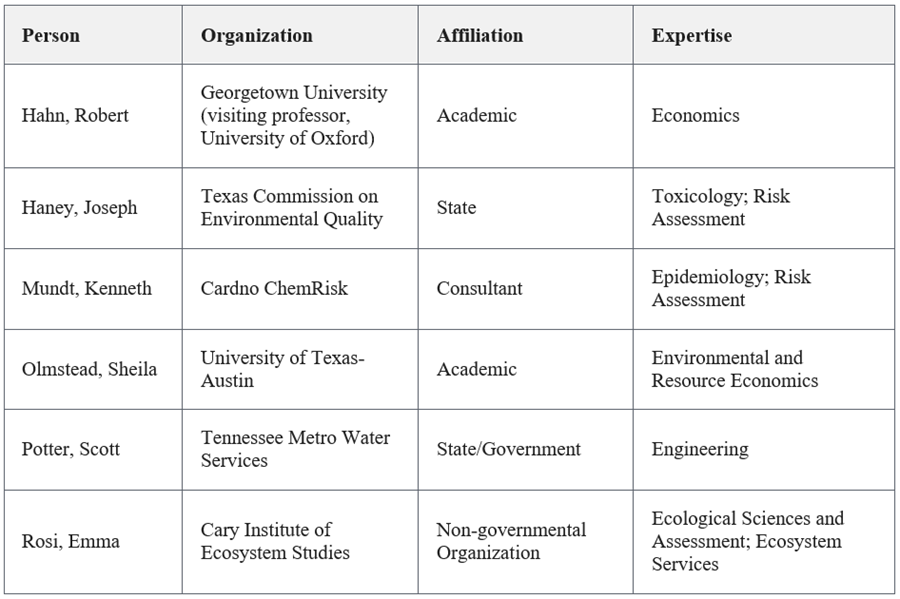
New ASC Member

New CAAC Members
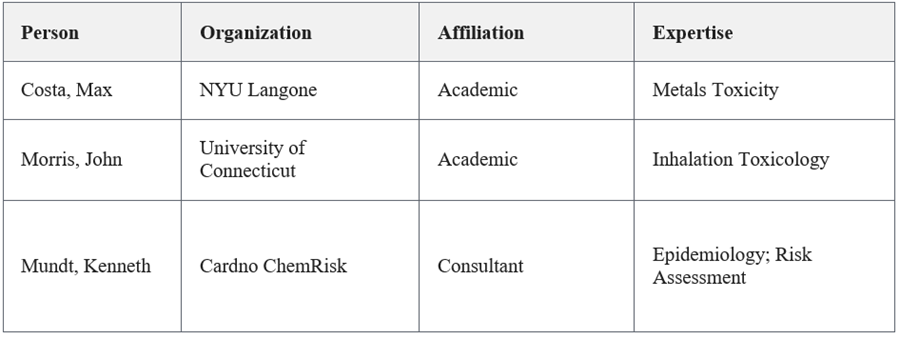
New DWC Members

New RAC Members
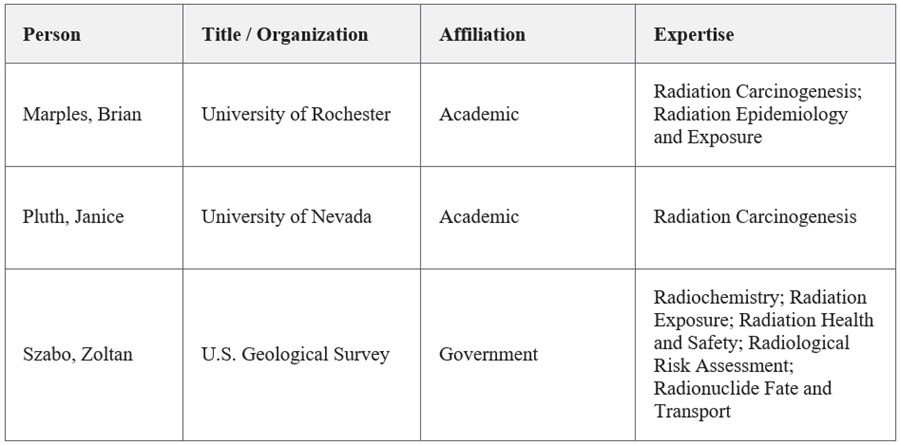
COMMENTARY: VISIT EVANSVILLE, INDIANA
AG Curtis Hill Praises Injunctions Against Precious Metals Dealers That Scammed Seniors
Attorney General Curtis Hill announced today that a federal judge has issued preliminary injunctions against two precious metals dealers and associated companies accused of soliciting nearly $200 million from seniors and other vulnerable investors nationwide by touting precious metals at grossly inflated prices that were not disclosed.
The injunctions come weeks after Attorney General Hill, the Office of the Indiana Secretary of State and the Indiana Securities Division joined a nationwide enforcement action to halt the fraud scheme, allegedly perpetrated by defendants Metals.com and Barrick Capital, Inc. The action is the largest joint filing with state regulators in Commodity Futures Trading Commission history.
The companies are accused of soliciting $185 million from at least 1,600 seniors and other investors. The companies’ overcharges averaged from 100% to more than 300% over the prevailing market price. When questioned by customers about the value of the metals they purchased, the companies falsely claimed that they were rare and carried a premium far above the base melt value. In reality, the metals were significantly less valuable than the companies claimed.
“Not only did these companies severely misrepresent the value of their precious metals, they targeted elderly Hoosiers, who are among our most vulnerable citizens,†Attorney General Hill said. “We are pleased that the court has taken preliminary action to stop the scheme, and we hope that our evidence of their fraud leads to additional punishment.â€
The preliminary injunctions, issued by a judge for the U.S. District Court for the Northern District of Texas, temporarily enjoin the companies and their affiliates from entering into any transactions involving “commodity interests†and from accepting money from any person for the purpose of purchasing or selling securities or equities, among other restrictions. They are also prevented from destroying, altering or disposing of any records related to their business activities.
The lawsuit seeks to permanently enjoin the companies from any commodity-related activities, as well as civil monetary penalties and additional relief.
HOT JOBS IN EVANSVILLE
|
|||||||||||||||||||||||||||||||||||||||||||||||||||||||||||||||||||||||||||||||||||||||||||||
|
|||||||||||||||||||||||||||||||||||||||||||||||||||||||||||||||||||||||||||||||||||||||||||||
“Left Jab†And “Middle Jab†And “Right Jab†October 20, 2020
“Right Jab And Middle Jab And Left Jabâ€Â was created because we have a couple of commenters that post on a daily basis either in our “IS IT TRUE†or “Readers Forumâ€Â columns concerning National or International issues.
The majority of our “IS IT TRUE†columns are about local or state issues, so we have decided to give our more opinionated readers exclusive access to our newly created “LEFT JAB and Middle Jab and RIGHT JAB† column. They now have this post to exclusively discuss national or world issues that they feel passionate about.
We shall be posting the “LEFT JAB†AND “MIDDLE JAB†AND “RIGHT JABâ€Â several times a week.  Oh, “LEFT JAB†is a liberal view, “MIDDLE JAB†is the libertarian view and the “RIGHT JAB is representative of the more conservative views. Also, any reader who would like to react to the written comments in this column is free to do so.
Adopt A Pet
Auggie is a 3-month-old male kitten! He is so much fun and loves to play and take off with things while the staff are trying to clean his room! His adoption fee is $60 and includes his first vaccines & deworming, flea treatment, neuter, microchip, and more! Get details at www.vhslifesaver.org/adopt!


